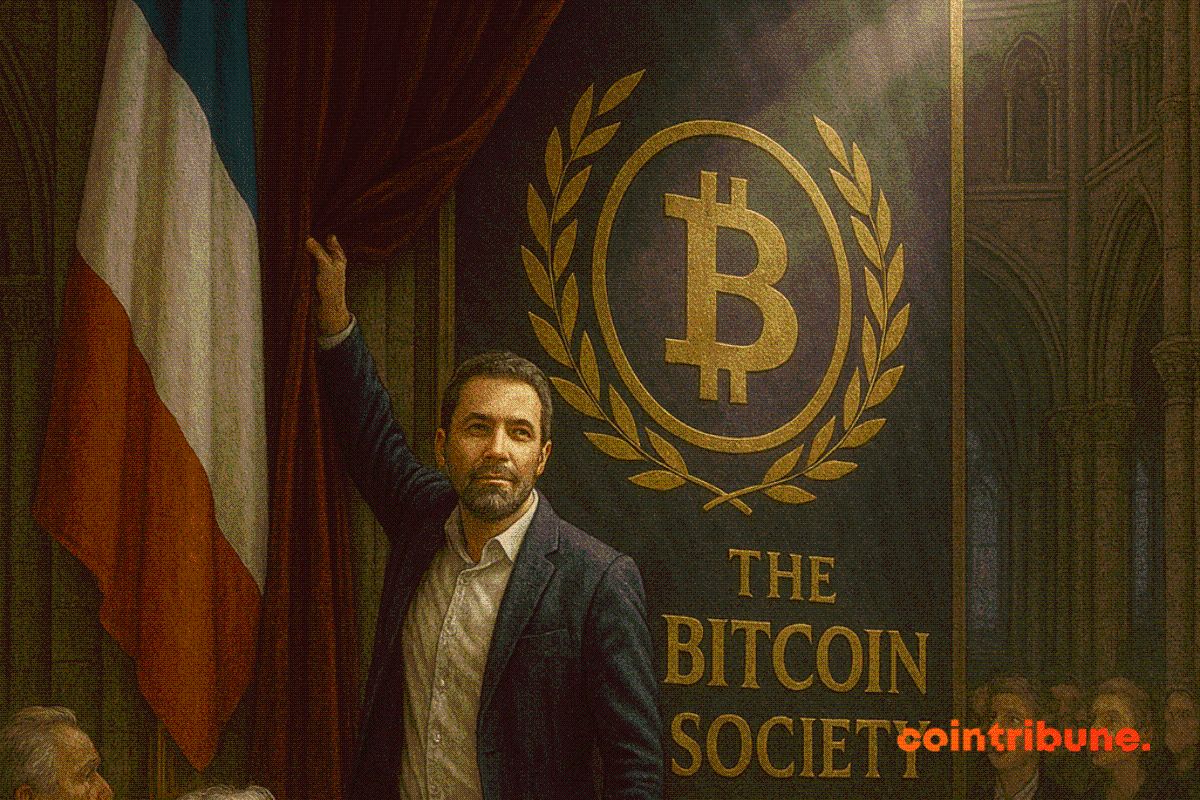Stablecoin Market Exceeds $280B as ECB Warns of Potential Systemic Risks
- Stablecoin market exceeds $280B, driven by regulatory clarity and institutional adoption, capturing 8% of crypto assets. - ECB warns of systemic risks from stablecoin concentration, de-pegging events, and mass redemption "runs" threatening global markets. - USDC overtakes USDT in onchain activity due to regulatory alignment, with Circle's market cap rising 72% YTD to $74B. - ECB calls for global regulatory coordination to address cross-border arbitrage gaps and prevent destabilizing retail deposit shifts
The total value of stablecoins has now exceeded $280 billion, making up 8% of the entire crypto-asset sector, as clearer regulations and greater institutional involvement fuel expansion. Nevertheless,
Analysts at JPMorgan observed that Circle's
The ECB’s recent publication emphasizes that while stablecoins are overwhelmingly backed by U.S. dollar assets (accounting for 99% of the $280 billion total), they could threaten financial stability if not properly managed. The central bank pointed to two main risks: the possibility of “de-pegging” events—where stablecoins lose their dollar value—and the systemic consequences of a large-scale redemption event. In such cases, issuers might be forced to sell off reserve holdings, including U.S. Treasury securities, potentially causing disruptions in global markets

Regulatory arbitrage across borders adds further complexity. Differences in reserve and redemption standards between regions—for example, when stablecoins are jointly issued by EU and non-EU entities—could hinder regulators’ ability to enforce adequate protections. The ECB urged for international cooperation through organizations like the G20 and Financial Stability Board to close these regulatory gaps
Despite these challenges, stablecoin usage remains heavily concentrated in crypto trading, with stablecoins involved in 80% of centralized exchange transactions. Retail applications, such as international remittances or protecting against inflation in developing economies, are still minimal, making up just 0.5% of total transaction volume
The ECB’s cautions are echoed by other central banks, such as the Dutch National Bank’s governor, who warned that stablecoins could disrupt the eurozone’s banking sector. On the other hand, some industry leaders, including Coinbase’s chief policy officer, maintain that fully backed stablecoins are actually safer than conventional banking models
As regulators strive to balance innovation with financial stability, the future will depend on harmonizing global standards to prevent systemic risks while encouraging responsible development.
Disclaimer: The content of this article solely reflects the author's opinion and does not represent the platform in any capacity. This article is not intended to serve as a reference for making investment decisions.
You may also like
Solana News Today: Navigating Crypto's 2026 Challenge—Finding Harmony Among DeFi, AI, and Regulatory Demands
- Coinbase Ventures forecasts 2026 trends: DeFi growth, AI-driven risk management, and crypto market evolution driven by Solana's institutional adoption and ETF inflows. - DeFi Development Corp. plans $1B Solana token acquisition via shelf registration, signaling confidence in blockchain infrastructure and institutional demand. - Prospective CFTC chair Michael Selig advocates balanced regulation for digital assets, opposing enforcement-only approaches to prevent offshore market shifts. - Quantifind leads A

The Emergence of ICP Caffeine AI: A Fresh Driving Force for Blockchain Expansion Powered by AI?
- DFINITY Foundation launched ICP Caffeine AI in November 2025, claiming to reduce AI inference costs by 20–40% through on-chain execution. - Institutional partnerships and a deflationary token model drove a 385% ICP price surge in Q4 2025, but dApp activity fell 22.4%, signaling engagement challenges. - The platform’s hybrid cloud partnerships and chain-of-chains design aim to bridge DeFi and traditional finance, yet regulatory scrutiny and C3.ai’s financial instability pose risks. - Experts remain divide

Trump Signs "Genesis Mission" Order to Boost AI Innovation in the United States

France : Larchevêque Unveils The Bitcoin Society
